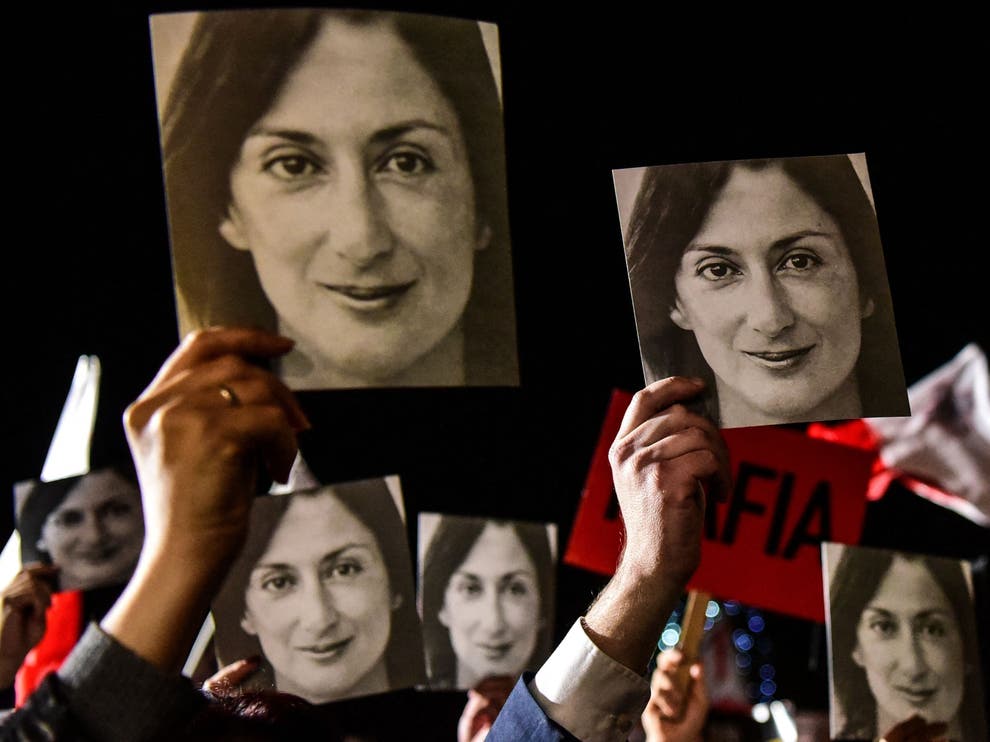Malta judges set to conclude report into murder of Daphne Caruana Galizia
The findings will have to be made public within eight working days

When a bomb exploded in Malta in October 2017, killing an investigative journalist, it sent a shockwave across the island and began to peel back the curtain on a murky underworld of political corruption in the European Union’s smallest country.
Campaigning journalist Daphne Caruana Galizia was murdered in October 2017 as she investigated a grid of companies that she believed were channeling kickbacks to Maltese politicians.
Today, a panel of judges should announce they have concluded an inquiry into the assassination, but it is as yet unclear if they will immediately make their findings public.
The case forced the resignation of the prime minister Joseph Muscat in 2019 and the country’s evident failure to tackle political graft and money laundering was a key factor in its recent grey listing by the The Financial Action Task Force (FATF), the global money laundering and terrorist financing watchdog.
The independent inquiry, separate to a police investigation, looked into whether and how far the state was responsible for Caruana Galizia’s death or neglected to prevent it. Witness testimony has raised concerns about endemic corruption, political involvement in the murder, and obstruction of justice.
The inquiry only took place after fierce resistance from the government which only caved after two years of sustained international pressure and demands from her family.
In a Facebook note posted the day after the murder, her son Matthew, also a journalist, wrote: “This was no ordinary murder... We are at war against the state and organised crime, which have become indistinguishable.”
Since it began its work there have been concerns over conflict of interest of some of the board members, and the terms of reference, and international press freedom NGOs have denounced interference.
Caruana Galizia reported on financial crimes, money laundering and fraud by elected and public officials.
The inquiry heard testimony from dozens of witnesses, including investigators, politicians and journalists describing the murder scene and detailing threats to Caruana Galizia. Former Prime Minister Joseph Muscat criticised the inquiry for overreaching while giving evidence for five hours.
In December 2020, Special Rapporteur for the Parliamentary Assembly of the Council of Europe, Pieter Omtzigt wrote: “In a few months, the Daphne Caruana Galizia inquiry has done more to expose the corruption, misgovernment and criminal conspiracies that plagued Malta at the time of her death than all of the endless, opaque and ineffectual magisterial inquiries put together.”
The board must publish the report within eight working days, according to the terms of reference. The prime minister must also table the report in parliament within five working days of receiving it.
Expectations of any reforms coming out of the inquiry are limited in the build up to an election, potentially scheduled for next year.
Almost four years after the murder there have been no convictions although four men have been charged supplying and triggering the bomb. An accomplice Vincent Muscat who turned state’s witness told police that the killers were paid 150,000 euros to murder Caruana Galizia. They used a bomb bought from Maltese gangsters and supplied by the Italian mafia, he said.
Subscribe to Independent Premium to bookmark this article
Want to bookmark your favourite articles and stories to read or reference later? Start your Independent Premium subscription today.

Join our commenting forum
Join thought-provoking conversations, follow other Independent readers and see their replies